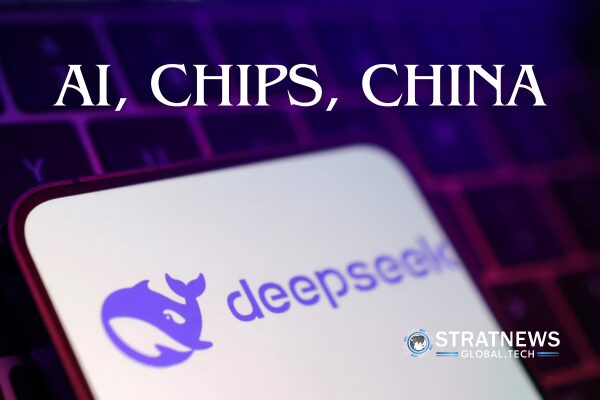US Accuses China’s DeepSeek of Aiding Military and Dodging Chip Export Rules
A senior US official has accused Chinese AI firm DeepSeek of supporting China’s military and intelligence operations, and of using shell companies in Southeast Asia to obtain advanced US semiconductors restricted under export controls.
DeepSeek, based in Hangzhou, has gained global attention for developing AI models that it claims rival those from US leaders like OpenAI and Meta. Yet, US authorities now say the firm plays a direct role in China’s military-industrial strategy.
“This goes beyond open-source use of DeepSeek’s models,” the State Department official told Reuters. The company, according to US assessments, shares user data and activity statistics with Chinese surveillance agencies. US lawmakers have also raised concerns that DeepSeek transfers American user data through infrastructure linked to state-owned telecom China Mobile.
Suspected Access to Banned Nvidia Chips
DeepSeek reportedly holds significant quantities of Nvidia’s powerful H100 chips, restricted from sale to China since 2022. These chips are essential for training large AI models. The official said DeepSeek tried to bypass US export rules by setting up shell companies in Southeast Asia and accessing data centres in the region.
While it’s unclear if these efforts succeeded, three separate sources told Reuters that DeepSeek obtained H100 chips after the export ban. The number, however, is believed to be much lower than the 50,000 units the company was previously claimed to possess.
Nvidia, in response, said DeepSeek had legally acquired H800 chips, not H100s. The company also reiterated it does not support entities violating US export laws and that it has exited the Chinese data centre market.
Singapore recently charged three men in a case reportedly tied to the illegal transfer of Nvidia chips to DeepSeek. Malaysia is also investigating whether a Chinese firm is training large AI models with restricted chips.
Links to China’s Military and Intelligence
US officials say DeepSeek appears in over 150 procurement documents linked to China’s People’s Liberation Army and other state defence organisations. The company is said to have delivered services to PLA research institutions, further strengthening suspicions of military alignment.
Chinese law requires firms to share data with government bodies upon request. However, evidence that DeepSeek is proactively doing so raises concerns over the privacy of its global user base.
Despite mounting allegations, the US has not yet added DeepSeek to any trade blacklists. There are also no public accusations suggesting Nvidia knowingly assisted DeepSeek’s military links.
Meanwhile, DeepSeek has not responded to repeated questions from Reuters about its privacy practices, chip sourcing, or its use of shell companies.
Doubts Over Cost and Capability Claims
In January, DeepSeek boasted that its models – V3 and R1 – matched the performance of top US models at a much lower cost. The company claimed it spent just US$5.58 million in computing power.
But AI experts question the feasibility of such figures. Given the computing demands of training frontier AI models, many believe the actual cost is significantly higher and possibly subsidised by unauthorised access to restricted chips.
As scrutiny intensifies, the AI company has found itself at the centre of growing US-China tech tensions, with its next moves likely to determine whether it joins other Chinese tech firms already blacklisted by the US.


